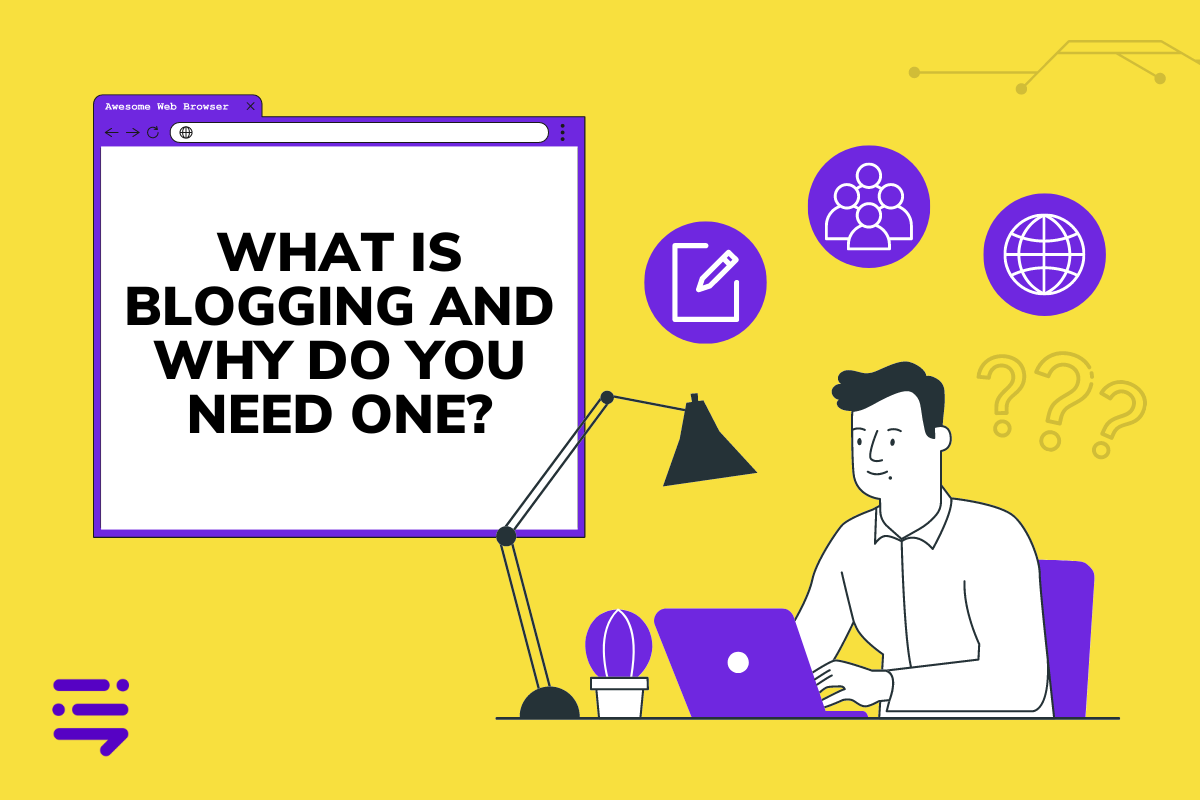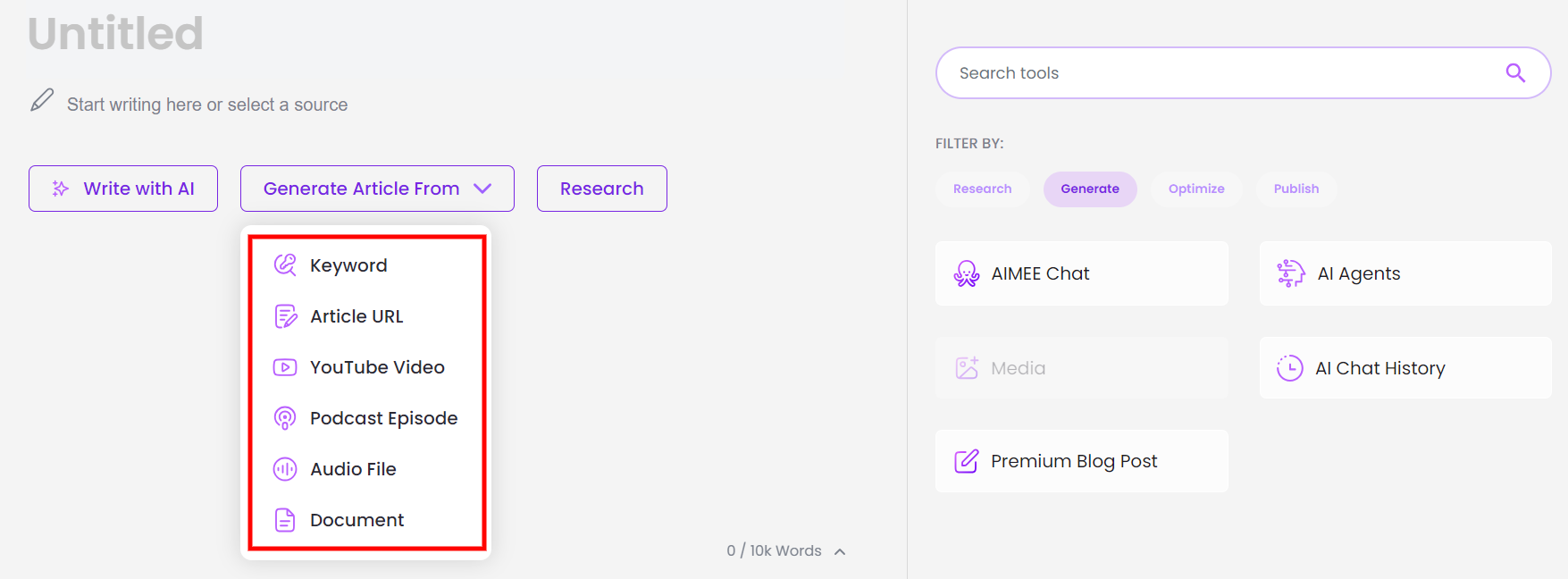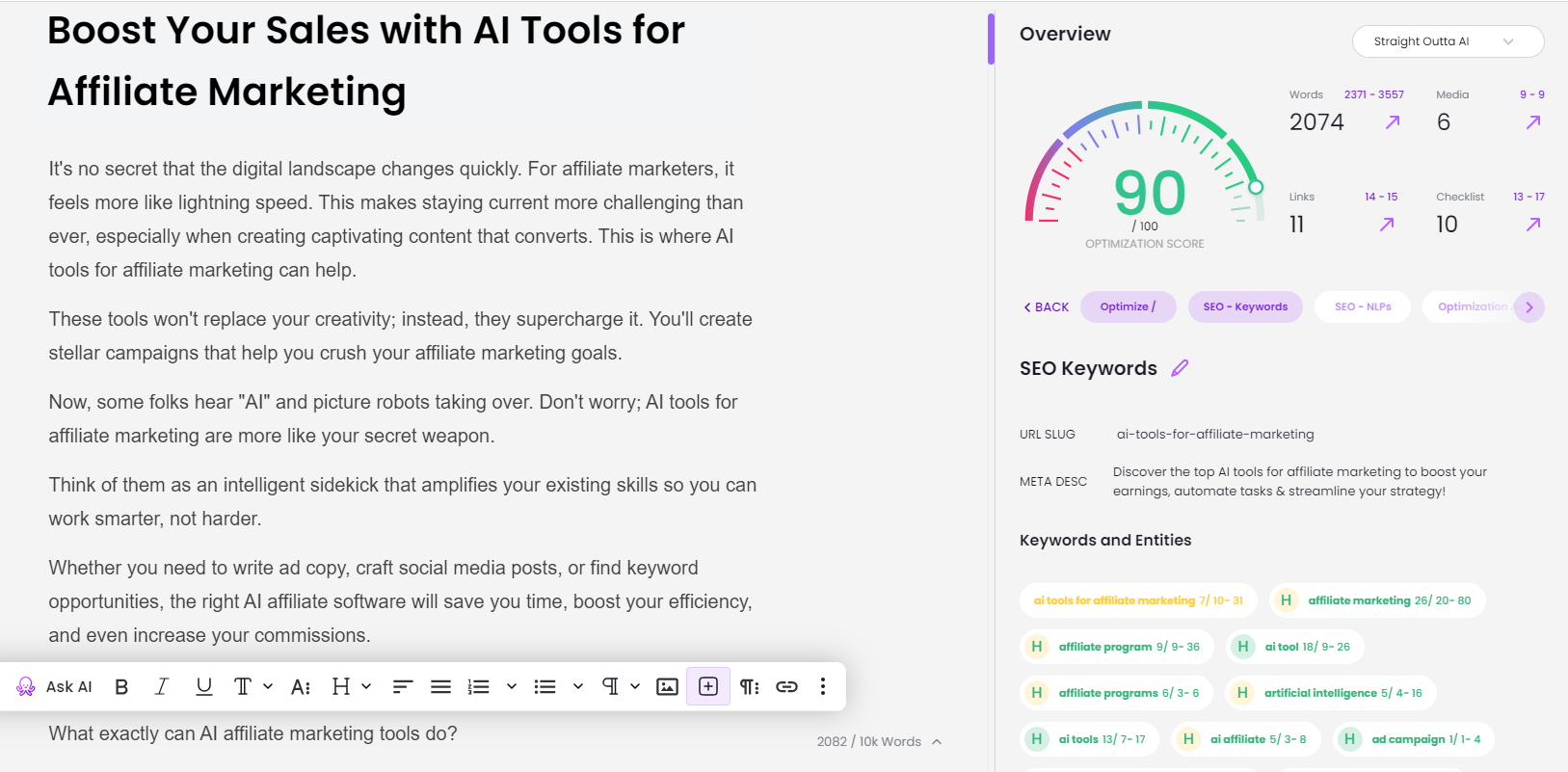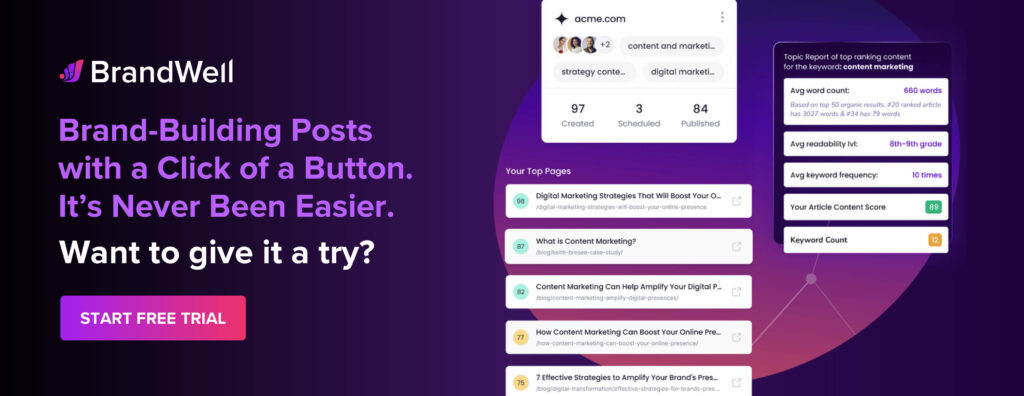Discover top guides, trends, tips and expertise from AIO Writers
What Is Blogging and Why Do You Need a Blog on Your Website?
Julia McCoy
Wednesday, 22nd Mar 2023
Are you looking to expand your business or boost your personal brand? Blogging can be a powerful tool to help you achieve these goals. But what is blogging exactly and how does it work?
When we hear the word “blog” what comes to mind is a digital journal posted on the Internet where people can share their thoughts and opinions on any topic under the sun. The first ever blog, which was created by Justin Hall on Links.net in 1994, was designed for that very purpose. According to HubSpot, Hall called it his personal homepage which contained a review of HTML examples he came across from various online links.
Three decades later, there are now 518 million blogs on Tumblr alone! More than 6 million blog posts go live each day — that’s 2.5 billion posts published every year.
With the popularity of blogging and its ability to reach a wide audience, it’s no wonder that marketers are using this technique to promote businesses, products, and services.
From providing valuable content to potential customers to increasing the visibility of a brand online, blogging offers many advantages for those who are willing to put in the effort. But it’s not without its challenges.
In this blog post, you will be introduced to blogging and its benefits for your business. Moreover, you will learn how you can consistently create good content.
So, what is blogging? Let’s explore.
Table of Contents
What is Blogging?
Blogging is a type of web-based writing that gives people the chance to express their thoughts, ideas, narratives, and experiences. It’s also a great way to connect with others who have similar interests.
The most popular blogs are food blogs, travel blogs, lifestyle blogs, and political blogs.
Beyond personal blogs, the art of blogging has also evolved into a powerful tool for promoting a business or brand. Businesses are now blogging to reach out to prospective customers, offering useful information on their goods or services.
Content marketers can capitalize on blogging to drive leads through targeted SEO strategies. These include keyword targeting and backlinking campaigns that can boost conversion rates for a better return on investment.
Through business blog posts, companies are able to increase their visibility on search engines, engage with target audiences, strengthen customer relationships, and enhance customer service through direct communication.
To succeed in blogging, you must be prepared to show commitment and effort. A good tip would be to treat it like clockwork: plan ahead, set targets, create an editorial calendar, stick to timelines, and measure results.
What is the Purpose of Blogging?
Blogging serves both to engage readers and enhance search engine rankings. Blogging can be used to share information, promote products or services, generate leads, and establish a brand presence online. It is also an effective way to increase website traffic and boost SEO performance.
Build Authority
Positioning yourself as an authority in your niche is essential to developing trust and connections with prospective buyers. Through blog content, you can provide helpful advice on topics related to your industry, answer questions from readers, offer tips and tricks on how to use your products, highlight customer success stories, and introduce new product lines or features.
By engaging with your audience through blogging and providing valuable content that they can benefit from, you’ll be able to stand out among competitors who don’t have a blog presence.
Improve Rankings
If your company website is just sitting there with zero visitors, blogging can help. Search engine optimization (SEO) involves optimizing web pages so they rank higher in search results.
Having fresh content on your blog is one of the most important factors when it comes to improving SEO performance because it tells search engines that there’s something new happening at your site that is worth indexing. This means every time you publish a blog post, there’s a chance that people will find it online when they enter relevant search terms into Google.
Additionally, having keyword-rich titles and descriptions associated with each post gives even more opportunity for searchers to find you if they’re looking specifically for what you have written about.
Benefits of Blogging
Blogging is one of the most effective ways for businesses to increase their online presence. By regularly crafting content that is pertinent to your target demographic, you can attract new prospects who may be interested in what you have to offer.
By regularly publishing blog posts, businesses can give readers something to look forward to and keep them engaged with the brand. Customers can post comments or ask questions related to topics covered in the article – providing an opportunity for two-way communication between companies and their audiences.
Incorporating calls-to-action (CTAs) into blog posts can help businesses convert readers into leads and sales. Offering discounts or free trials as incentives can entice visitors to take the next step in their journey, potentially leading them down the path of becoming paying customers.
Businesses of all sizes can use blogging to expand their visibility and reach potential customers. But before starting a blog, you should also consider the challenges of maintaining a blog as part of your marketing strategy.
Challenges of Blogging
Blogging may be fulfilling but there are pros and cons to blog writing.
One of the most common issues that bloggers face is writer’s block. This occurs when your mind suddenly goes blank and you don’t know what to write or how to express your ideas. To combat this problem, many bloggers come up with content calendars and brainstorming sessions to plan topics ahead of time.
But what if you already have a topic but don’t know where to start? Thanks to technology, you can now automate your blog writing process and create high-quality blog posts even with writer’s block!
With an AI-powered content marketing automation platform like BrandWell, you can leave all the heavy lifting to the app. After you type in your target keyword or URL, the AI will automatically create a blog outline for you and fill those blog sections with information from high-ranking resources.

Another challenge that bloggers face is time management. Bloggers need to stick to a posting schedule — whether it’s daily, weekly, or monthly. But writing blog posts requires hours of research, writing, and editing to produce high-quality content that appeals to readers and search engines alike.
It’s also important for bloggers to find a balance between quantity and quality, ensuring every piece of content meets the highest standards while staying on schedule with their publishing goals.
Again, BrandWell can be a huge help in these areas. Within minutes, you’ll have a 2,000-word blog post ready — 100% original and plagiarism-free. And because it is backed by the most advanced NLP algorithms, the output is just as good as human-written content.
 Another issue that some bloggers encounter is dealing with negative comments from readers or trolls online who may disagree with the blogger’s opinions or take issue with certain elements of the blog such as design choices or writing style. Negative feedback can be difficult for any creator to handle, especially if it comes from someone anonymous online who isn’t willing to engage in constructive dialogue.
Another issue that some bloggers encounter is dealing with negative comments from readers or trolls online who may disagree with the blogger’s opinions or take issue with certain elements of the blog such as design choices or writing style. Negative feedback can be difficult for any creator to handle, especially if it comes from someone anonymous online who isn’t willing to engage in constructive dialogue.
To prevent counterproductive arguments online, create clear guidelines for commenting so everyone knows what kind of behavior will not be tolerated. You could also use tools like Akismet to help identify spammy comments before allowing them through moderators.
Despite these challenges, blogging can be a rewarding experience especially when you start seeing results. Now let’s look at how to start a blog to take advantage of its many benefits.
Quantity VS Quality: Is it Better to Write One Long Blog Post or 10 Short Ones? https://t.co/mDVjHNt7DJ via @neilpatel #blogging #contentmarketing pic.twitter.com/pmOi17I26J
— By This River (@ByThisRiverUK) March 2, 2018
How to Start a Blog
To ensure a successful launch, here are some helpful pointers to keep in mind when starting a blog.
1. Choose a Blogging Platform
The most popular blogs are hosted on WordPress, Blogger, Tumblr, Medium, Squarespace, or Wix. Each of these blogging platforms has its own unique features and capabilities so it’s important to research and compare them thoroughly before making a decision.
2. Select Your Domain Name
Your domain name will be the signature of your blog forever so select carefully. It should be something catchy but also relevant to the content of your site. If possible, try including keywords related to your blog to help boost SEO rankings.
Read this guide on how to select a memorable domain name.
3. Design Your Blog
Most blogging platforms offer templates so all you have to do is customize them to your liking. Make sure that all elements on the page are easy to navigate so that your readers will have a pleasant experience. Do not overwhelm them with too much information – this includes text size/color as well as images/graphics used throughout the page.
4. Create Killer Content
Now that everything is set up, it’s time to start adding content. Write blog posts that are interesting and informative to keep readers engaged. Don’t forget to add social media buttons so that visitors can easily share your blog on their networks.
Publish posts regularly — at least once per week — to keep your blog fresh.
Tips for Successful Blogging
Blogging is an effective way to engage with readers and build relationships. To ensure your blog posts are successful, here are several tips to keep in mind when blogging.
First, focus on producing content that speaks to your target audience. Think about their interests, needs, and pain points. Make sure the content provides value by offering useful information or insights into topics they care about.
To improve readability and keep your readers hooked, add visuals like images, videos, and infographics to certain blog sections.
Second, use SEO best practices to boost the SERP ranking of your blog. Include relevant keywords throughout the body copy as well as titles, meta tags, and descriptions so that it’s easier for people to find it online.
Third, promote your blog posts through various channels such as social media or email newsletters to reach a wider audience. This will also help boost the visibility of new posts while giving existing followers something interesting to read regularly — which helps increase engagement rates too.
Try out different formats, such as polls or Q&As, to keep your readers engaged. This type of interactive content is often well-received amongst readers looking for something fresh from bloggers they already follow religiously.
What is Blogging? A Vehicle for Growth
Blogging can be a powerful tool for businesses, entrepreneurs, and individuals alike. It can be a great means to enhance the recognition of your brand, create connections with existing and potential buyers, bring in leads, and even improve sales.
By understanding what makes a successful blog post, you’ll be able to reap the fruits of your efforts — whether you’re writing from scratch or with the help of AI.

UNLOCK YOUR POTENTIAL
Long Headline that highlights Value Proposition of Lead Magnet
Grab a front row seat to our video masterclasses, interviews, case studies, tutorials, and guides.



